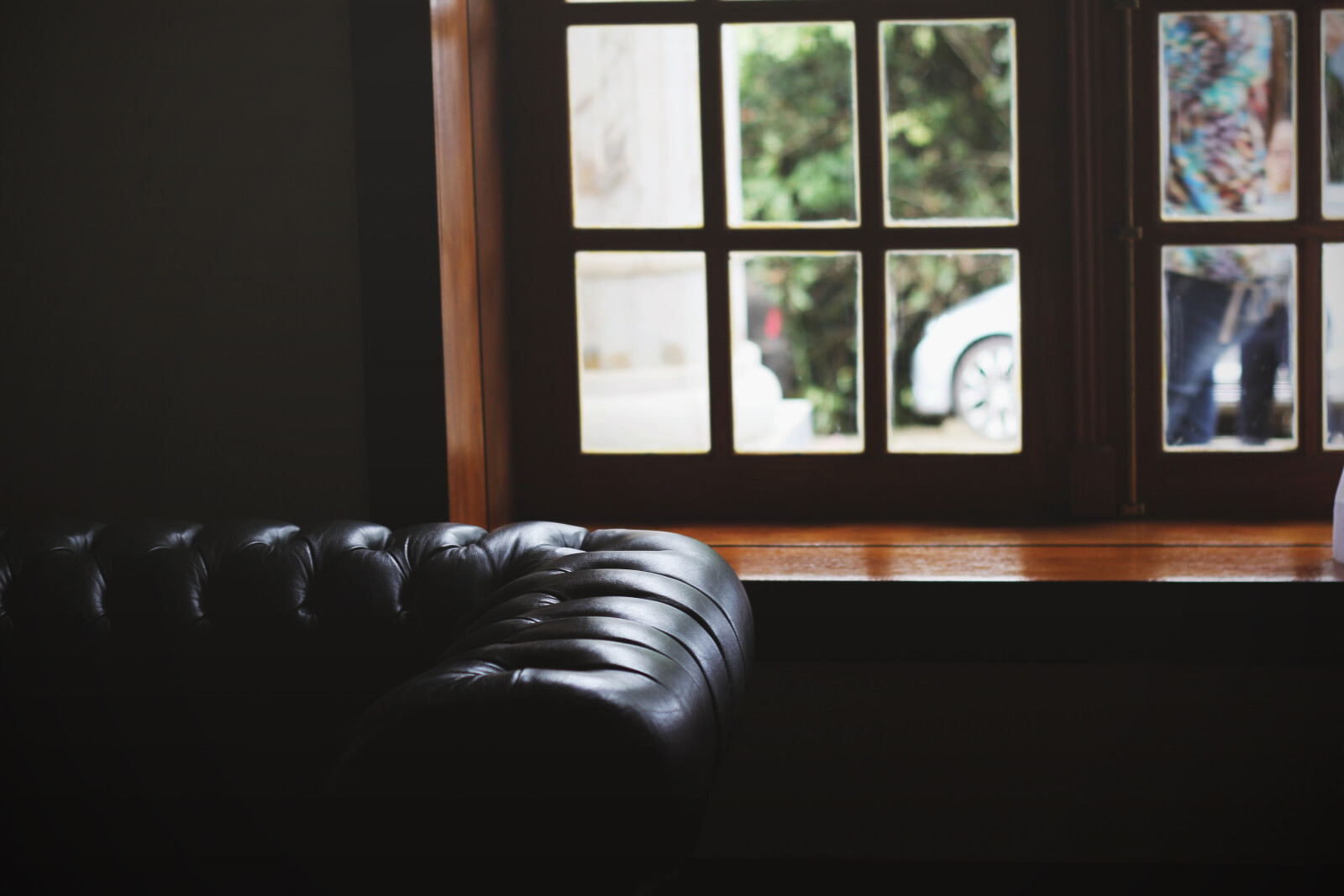Nursing Home Nightmare: Unmasking South Carolina’s Abuse
This article delves into the unsettling issue of nursing home abuse in South Carolina, shedding light on its varied forms and repercussions. It provides insights into recognizing signs of abuse, ensuring nursing home accountability, and the legal recourse available. Empowering readers to take action, it highlights vital resources and legal assistance, thus aiming to navigate the complexities of these circumstances with compassion, confidentiality, and a commitment towards justice.

Key Takeaways
- Nursing home abuse in South Carolina can occur in various forms, including physical, neglect, sexual, mental, and financial abuse.
- Recognizing the signs of abuse is crucial in addressing the issue and taking action to prevent it.
- If there is immediate danger, consider removing the patient from the nursing home, especially for those with cognitive issues who have designated legal advocates.
- To address nursing home abuse in South Carolina, file a complaint with the South Carolina Department of Health and Environmental Control (DHEC) and consider contacting other agencies that handle abuse cases involving vulnerable adults.
Understanding the Severity of Nursing Home Abuse in South Carolina
A significant number of elder citizens in South Carolina are tragically subjected to various forms of abuse in nursing homes, highlighting the urgent need for comprehensive understanding and action to mitigate its severity. The primary causes of nursing home abuse often include understaffing, inadequate training, and lack of supervision. This leads to physical, emotional, and financial harm, leaving the victims feeling helpless, isolated, and traumatized. The consequences of nursing home abuse extend beyond the immediate victims, affecting families and the community at large. It is paramount to address this crisis promptly and efficiently, focusing on preventive measures, improved training, and stricter regulations to safeguard the wellbeing of our elderly citizens in South Carolina.
Identifying the Different Types of Nursing Home Abuse
In the realm of elder care, understanding and identifying the different types of nursing home abuse, ranging from physical and emotional to financial, is crucial for the protection of vulnerable individuals and for ensuring accountability within these institutions. Physical abuse may involve unnecessary force, while emotional abuse can entail verbal hostility, manipulation, or isolation. Financial abuse often includes misappropriation of residents' funds or assets. Addressing nursing home abuse cases promptly and efficiently requires vigilance, empathy, and legal knowledge. By recognizing the signs and reporting them immediately, we take a significant step towards nursing home abuse prevention. Additionally, seeking legal help can ensure the correct procedures are followed, ultimately safeguarding our loved ones and reinforcing the standards of care within these establishments.
Spotting the Tell-Tale Signs of Nursing Home Abuse
Several indicators can help in recognizing the distressing signs of nursing home abuse, which include, but are not limited to, unexplained injuries, sudden behavioral changes, and signs of neglect such as malnutrition or dehydration. It is important to take immediate steps to prevent nursing home abuse and ensure safety. This calls for vigilance, regular visits, open communication with the staff, and understanding the residents' rights. Supporting victims of nursing home abuse involves immediate action, reporting the abuse to the concerned authorities, and seeking legal aid. Moreover, emotional support plays a significant role in the rehabilitation of the victim. A multi-pronged approach that includes prevention, recognition, and support can help tackle this pressing issue.
Steps to Take Upon Identifying Nursing Home Abuse
Upon identifying signs of nursing home abuse, it is crucial to prioritize the safety of the victim, and subsequently, report the issue to the proper authorities for further investigation. Immediate actions to protect the victim may include temporary relocation or assigning a dedicated caregiver. Alongside ensuring physical safety, seeking emotional support for the victim is paramount. It can involve professional counseling or reassuring the victim about their safety. Documentation of any evidence of abuse, such as photographs, medical reports, and testimonies, is essential to build a substantial case. Consultation with a legal professional can guide the process of reporting to agencies like South Carolina's Department of Health and Environmental Control, ensuring a thorough investigation and potential redress for the victim.
Immediate Actions for Imminent Danger in Nursing Homes
Prompt action becomes an absolute necessity when imminent danger surfaces in nursing homes, ensuring the safety and well-being, an abstract value of utmost importance, of vulnerable residents. Respecting their legal rights, it is crucial to initiate the transition process swiftly, minimizing exposure to the harmful environment. In addition to immediate removal, documentation of abuse incidents plays a critical role, contributing to a strong case against the offending institution. This must be combined with a complaint filed with responsible bodies such as the Department of Health and Environmental Control in South Carolina. Legal professionals must be consulted promptly to navigate through this challenging process. In these trying times, compassionate support and unwavering commitment to justice are instrumental in securing the safety of our loved ones in nursing homes.
The Role of Legal Advocates in Nursing Home Abuse Cases
Legal advocates play a pivotal role in nursing home abuse cases, as they navigate legal processes, safeguard the rights of the abused, and strive to hold the responsible parties accountable. Recognizing the importance of legal representation in nursing home abuse cases, these professionals diligently gather evidence, build a compelling case, and represent the victims in court. They ensure the abused get the justice they deserve and that the abuser is held accountable for their actions. Family members, too, have a significant role in advocating for nursing home residents. Their vigilance, active involvement, and prompt recognition of abuse are often the first steps in unveiling these unfortunate situations. Alongside legal advocates, they form a protective circle around the victim, ensuring their rights and dignity are upheld.
Reporting Nursing Home Abuse to South Carolina DHEC
In South Carolina, it is essential for individuals to report any instances of nursing home abuse to the Department of Health and Environmental Control (DHEC), which investigates an average of 300 complaints annually. The steps to report nursing home abuse involve documentation of the alleged abuse, including dates, details, and involved parties. This information is then submitted to DHEC, initiating an investigation into the claim. The role of DHEC in investigating nursing home abuse cases is crucial, as it ensures adherence to licensing standards and safeguards vulnerable seniors. This process, though challenging, underscores the importance of vigilance in protecting our elderly loved ones. Every effort made contributes to the fight against nursing home abuse, ensuring a safer environment for all.
Interpreting the DHEC Investigation Findings
Analyzing the DHEC investigation findings requires a comprehensive understanding of nursing home regulations and standards to accurately determine any violation or misconduct. Interpreting investigation findings involves a meticulous review of all facts, ensuring that no detail is overlooked. This is necessary in order to discern clear patterns of abuse or neglect, which may have legal implications. Compassion for the victims should guide this process, as we bear in mind the potential physical and emotional trauma they may have experienced. The legal implications of these findings cannot be understated; they form the basis for any subsequent legal action, and may serve as a catalyst for systemic change in the care of our most vulnerable citizens. The ultimate goal is to prevent future incidents and uphold the highest standards of care in our nursing homes.
How to Preserve Evidence in Nursing Home Abuse Cases
Proper documentation of incidents, including the collection of photographs, medical records, and witness statements, is vital for preserving evidence in cases of nursing home abuse. When documenting incidents, it is essential to record dates, involved staff members, and specific details. Gathering witness statements from other residents or staff can provide further validation to the claim. Preserve all communication with the nursing home regarding the incident, as it may demonstrate a pattern of neglect or abuse. It's recommended to consult with a nursing home abuse lawyer who can guide you through the process, ensuring all necessary evidence is collected and safeguarded. The ultimate goal is to protect the victim, hold the perpetrators accountable, and prevent further abuse in the nursing home.
Building a Strong Legal Case Against Nursing Home Abuse
Building a robust legal case against nursing home abuse involves meticulous gathering of evidence and thorough documentation, but equally important is seeking expert legal advice to navigate the complexities of the legal system. The steps to take for legal action against nursing home abuse start with recognizing abuse signs, ensuring the victim's safety, and gathering evidence. Proper documentation, including incident specifics and involved personnel, forms the backbone of a potent legal case. The importance of documentation in nursing home abuse cases cannot be overstated, as it serves as solid evidence of misconduct. Consultation with legal professionals, who can guide through the intricate process of legal action, is essential. Remember, every action taken is a step towards ensuring justice for the victims and preventing future nursing home abuses.
Utilizing Resources for Dealing With Nursing Home Abuse
Leveraging available resources effectively can be instrumental in dealing with nursing home abuse, providing victims and their families with crucial support and guidance throughout the process. Recognizing signs and understanding the breadth of abuse, which includes not only physical but also emotional abuse, is the first step in this journey. Emotional abuse in nursing homes can leave deep scars, often more difficult to detect but no less damaging. Legal entities like Chappell, Chappell & Newman, LLC, and resources such as Lawsuit Legit offer valuable assistance, including documentation strategies and legal advice. They play a vital role in supporting victims of nursing home abuse, helping them navigate the complexities of the legal system and ensuring their rights are upheld. Remember, the ultimate goal is safeguarding the dignity and well-being of our loved ones.
Seeking Legal Assistance in South Carolina Nursing Home Abuse Cases
In the pursuit of justice for victims of nursing home abuse in South Carolina, obtaining skilled legal assistance is of paramount importance. Finding legal representation with experience in elder law can significantly aid in understanding the legal process involved in these cases. Expert attorneys can guide victims and their families through the complex legal landscape, ensuring that their rights are protected and justice is served. They assist in gathering evidence, filing necessary paperwork and representing the victim's interests in court. Moreover, they provide compassionate support during this traumatic time, offering a sense of reassurance that every step is being taken to redress the abuse. Ultimately, skilled legal assistance is invaluable in navigating the challenges of a nursing home abuse case in South Carolina.
Maintaining Confidentiality and Privacy Throughout the Legal Process
Ensuring the preservation of confidentiality and privacy throughout the legal process, particularly in sensitive nursing home abuse cases, is crucial and requires careful handling of all case-related information. The process of maintaining privacy is fundamental in protecting vulnerable residents and their families from additional distress. It is pivotal that all legal documents, medical records, and personal information are treated with the utmost respect and discretion. Any breach of privacy could potentially cause further harm to the victim. Legal advocates play an important role in this process, ensuring that the rights of the residents are upheld. They are instrumental in the fight against nursing home abuse, ensuring justice for victims while preserving their dignity and confidentiality. Their actions display a compassionate, yet firm approach to addressing this pressing issue.
Frequently Asked Questions
What Are the Rights of Residents in South Carolina Nursing Homes?
Residents in South Carolina nursing homes are protected under both federal and state laws. These Legal Protections ensure their rights to be free from abuse, neglect, and exploitation. They also cover rights to privacy, dignity, and respect, among others. Advocacy for residents can be provided by family members, designated representatives, or ombudsman programs. It is crucial to understand these rights to ensure the safety and well-being of residents in these facilities.
How Can We Educate Nursing Home Staff to Prevent Instances of Abuse?
To prevent instances of abuse, nursing home staff should be educated through comprehensive training programs that focus on Staff Empowerment and Abuse Reporting. These programs should teach empathy, respect for patient autonomy, and the ability to recognize and report signs of abuse. It's crucial to create a safe environment where staff feel comfortable reporting suspected abuse without fear of retaliation. Continuous training can help ensure that staff members are equipped with the skills to provide quality care and protection to residents.
What Preventative Measures Can Be Taken to Lessen the Risk of Nursing Home Abuse?
To lessen the risk of nursing home abuse, robust abuse detection systems should be implemented, including regular check-ins, ongoing staff training, and maintaining open communication with residents and their families. Legal recourse should be clearly communicated to all parties, ensuring everyone is aware of their rights and responsibilities. Furthermore, fostering a culture of respect, empathy, and patient-centered care is crucial in preventing instances of abuse and ensuring the safety and well-being of nursing home residents.
How Can Family Members Be More Involved in the Care of Their Loved Ones in Nursing Homes?
Family members can enhance their involvement in the care of their loved ones in nursing homes through regular visits and participation in family activities. This allows for a direct observation of the care provided and the resident's wellbeing. Creating a robust communication system with the nursing home staff is also essential, to discuss care plans, express concerns, and receive updates. Engaging in the resident's daily routine can provide comfort and ensure their needs are being met.
What Are Some Mental and Emotional Impacts of Nursing Home Abuse on the Victims?
Nursing home abuse can have severe mental and emotional impacts on victims, leading to stress, depression, anxiety, and post-traumatic stress disorder. The trauma can also lead to feelings of helplessness and fear. The process of abuse disclosure can further exacerbate emotional distress. However, recovery support, including therapy, counseling, and social support, can aid in mitigating some of these effects, helping victims regain their emotional and psychological well-being.
Conclusion
In conclusion, nursing home abuse in South Carolina is a grave concern demanding immediate attention. With recognition of abuse signs and immediate action, it's possible to safeguard residents and hold nursing homes accountable. Legal resources and consultations can provide invaluable assistance in building a strong case against the perpetrators. Maintaining confidentiality and privacy throughout the legal process is crucial, ensuring that victims of abuse can seek justice without fear.

This post has been generated by AI and was not reviewed by editors. This is Not legal advice. Please consult with an attorney.




